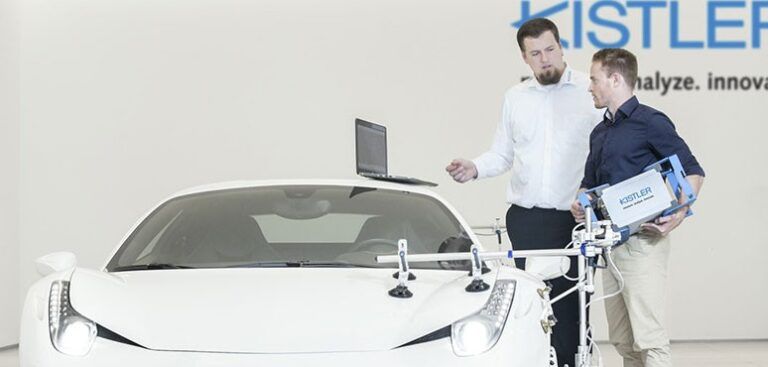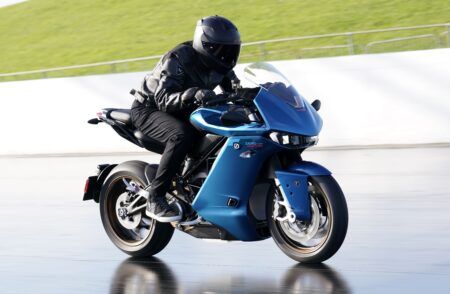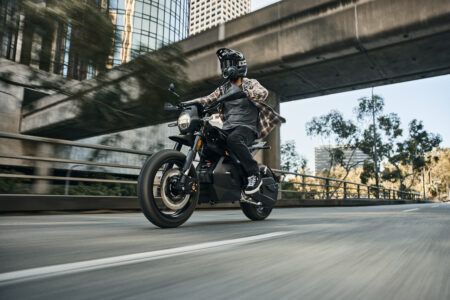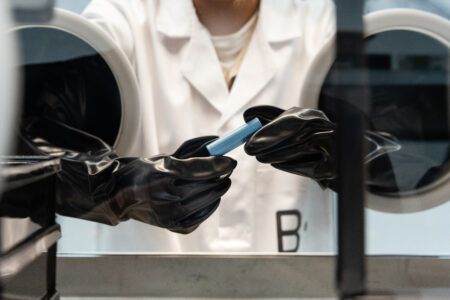Electromobility is only just beginning to gain momentum on our roads: a mere 0.2% of vehicles registered throughout the world are powered by electricity alone. The reasons for this are familiar: insufficient range, lack of infrastructure and (not least) higher acquisition costs. Nevertheless, it’s clear that electromobility will become a reality on our roads – and it will usher in a host of benefits: emissions will largely be eliminated, efficiency will be enhanced, and powertrain design will be simplified.
However, all these advantages won’t just materialize by chance: they depend on mature, developed technologies. To support to the automotive industry, Kistler, a UK-based company that provides dynamic measurement technology systems for monitoring and optimizing processes are deployed in many sectors, of which lightweight construction is one. Its mechanical joining systems are another, which are used for purposes such as battery production.
Test benches for electric motors play a key part in research and development, during production and also in final acceptance inspections. As things stand at present, modern vehicles are already equipped with electrified components that boost efficiency and save energy, such as electronic compressors and intelligent starter generators.
As the trend towards full electromobility gathers pace, the outlay and effort for testing will also increase – as is shown by the example of 48V starter generators, used in hybrid vehicles not only to optimize engine starting but also to feed braking energy back into the battery. Another key application area comprises battery simulators. They help to optimize vehicles and components for batteries of various types in different operating conditions, without the need to use the actual battery.
For 100% electrically powered vehicles – and even more so for autonomous driving – the focus is on the entire system comprising the main drive and all the vehicle’s auxiliary drives. Full-vehicle simulation is essential to optimize engine or motor control for different driving profiles, and to allow all the powertrain components to interact efficiently. Torque vectoring, for instance, is a technology that distributes the power from the electric drive to the wheels so that bends can be negotiated safely in all conceivable scenarios. Another key requirement – especially for autonomous driving – is redundancy of on-board systems: this, in turn, has a major impact on the operation and safety of the system as a whole. Trials on the test bench therefore create the conditions for boosting efficiency during development without the need for costly on-road testing.
All these challenges make it essential to continue developing appropriate measurement technologies. As regards test benches, Kistler collaborates with leading manufacturers across the globe to meet the prerequisites for safe and efficient electrical vehicles. Although these developments are still viewed with considerable skepticism in countries such as Germany, the Chinese market could well take on the role of a technology pioneer in the medium term, because policy makers there have defined more specific requirements.
Acoustic testing is an application that is attracting more attention in connection with electromobility: the perception threshold for noises and vibrations – especially in the vehicle’s interior – is far lower once the combustion engine is eliminated. However, this means that auxiliary drives such as servo motors become potential sources of disturbance for the vehicle occupants. For this purpose, Kistler integrates special NVH (Noise, Vibration, and Harshness) tests into its test benches. Based on piezo-electric accelerometers, these tests make it possible to optimize vehicle design in terms of vibration behavior.
Electric motor testing is another area where developments are moving rapidly ahead. Increased automation (i.e. direct integration of test benches into vehicle manufacture) is now the goal, in order to make auditing easier and guarantee that quality requirements are met. With this objective in view, Kistler is collaborating with leading automobile manufacturers to develop new technologies which currently include the software for end-of-line testing.





